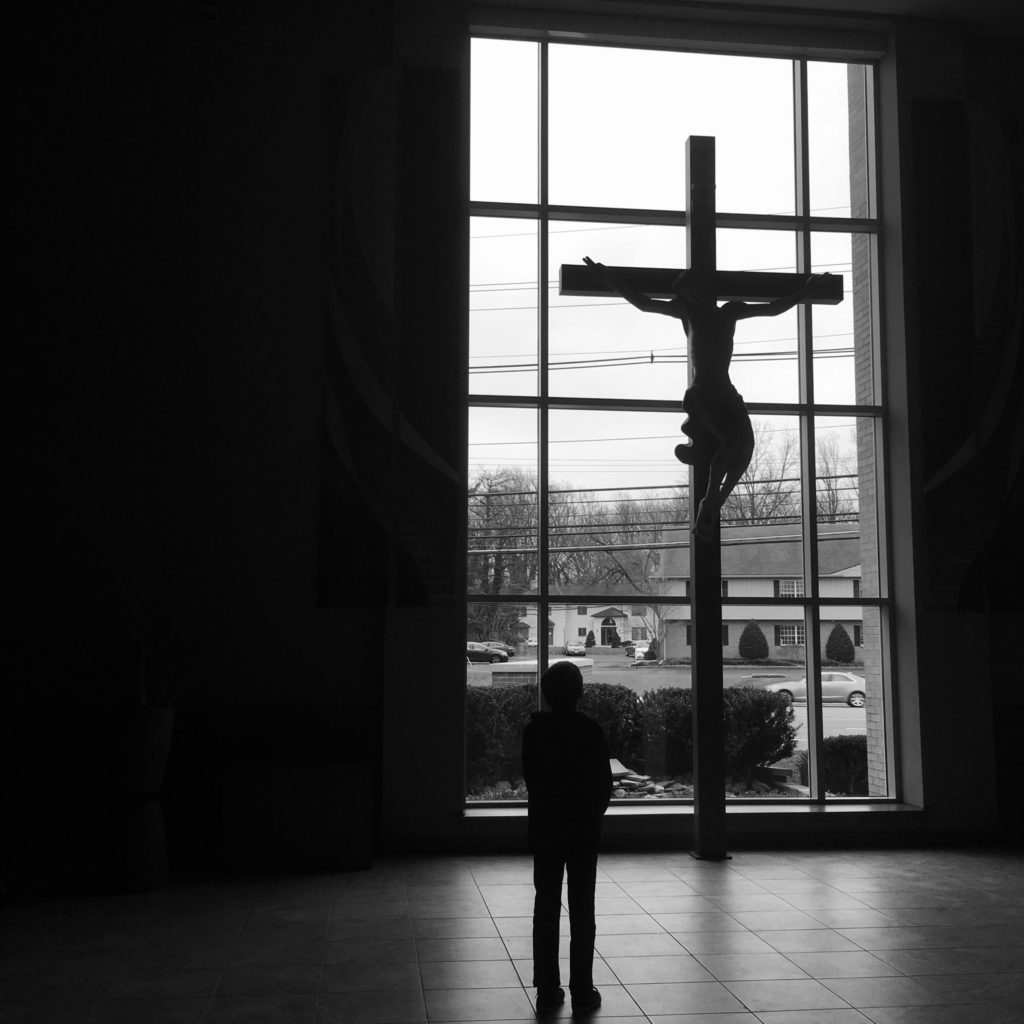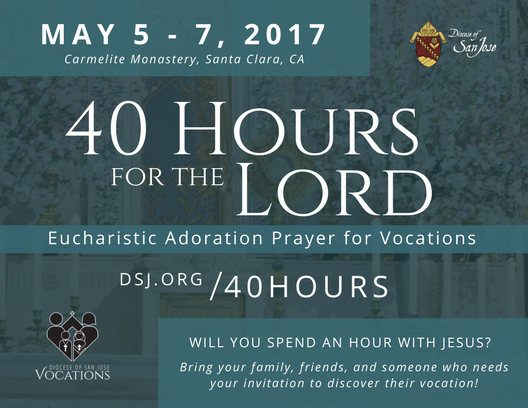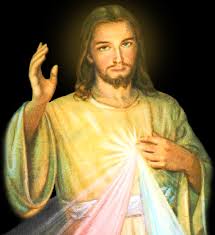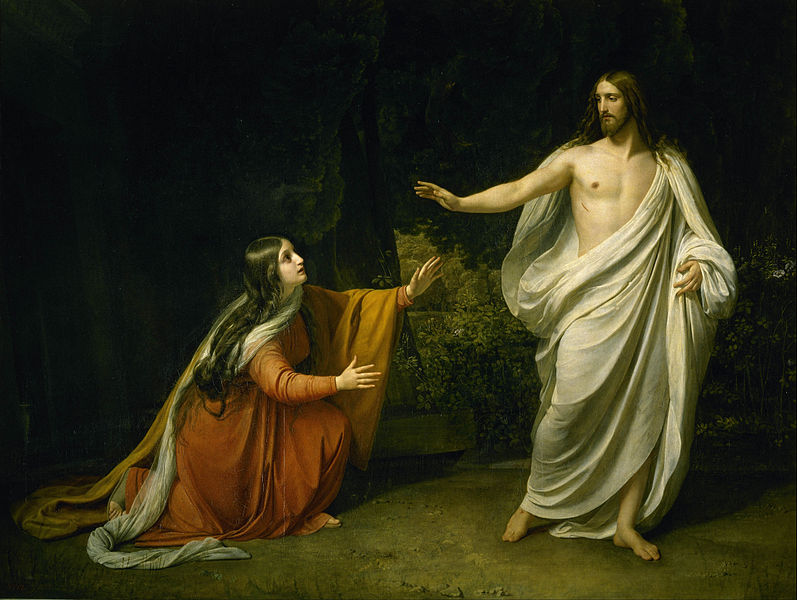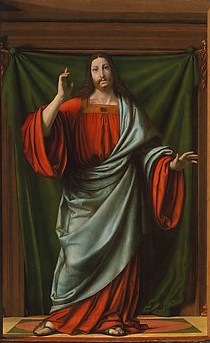
The Holy Father writes, “Hearing and following the voice of Christ, the Good Shepherd, means letting ourselves be attracted and guided by Him.” John Paul II would use charmed by Jesus. Have you ever felt that way before? If you haven’t that’s alright, and if you have, I hope and pray in the Holy Spirit that Jesus is going to charm your socks off; that He is going to charm you, and woo you, and school you in what it means to be loved by Him because His love is the cause of our joy.
Mary always wants to communicate, what it means to be loved by God. Our Blessed Mother blows me away. No human being, ever before or during or after, could possibly ever love God as much as Mary did. Nobody could love God as much as Mary did and does. There’s no heart ever that loved God as much as she. There’s nothing, there’s no heart more beautiful than hers. Mary is the most beautiful human being imaginable, and as the cause of our joy, she wants us to enter into that beauty.
Mary’s mission of charity is that we enter into the beauty of what it means to love God with all our heart, mind, soul, and strength, and especially to know His love for us; to know how God loves us with all His heart, mind, soul, and strength; to let ourselves be attracted and charmed by Him, guided by Him.
We must allow the Holy Spirit to draw us into this missionary dynamism, as Pope Francis says. I hope he just totally speaks to your heart because he’s a total missionary of charity in spirit. He’s a big-time missionary of charity in spirit. Everything he preaches is like St. Francis and St. Mother Teresa boiled down. He speaks to the culture in the way the culture needs to hear the words of the gospel, in a way that we can have an openness to hear, as if for the first time, and not think that we’ve heard it all before. He’s a perfectly chosen prophet and pontiff, by the Holy Spirit, for our time.
I totally believe in him; I have total confidence in him. Some more orthodox, traditional Catholics say, “I don’t know about him, he’s a little bit too unpredictable.” They would’ve said the same thing about Jesus of Nazareth. “He’s mad! He’s crazy! He doesn’t do anything! He breaks the Sabbath!” – just like the Pharisees.
Pope Francis says, “To offer one’s life to enter into the missionary dynamism is possible only if you’re able to leave ourselves behind.” It is very he hard to leave ourselves behind. Similarly, Jesus says, “unless you deny yourself, you shall not save yourself or find yourself. If you desire to follow me, deny yourself and pick up your cross. Those who want to save their lives will lose it.” This language can sometimes go a little bit over our heads, and we don’t quite understand it at face value. But basically, Pope Francis speaks truth in the way a common person can understand: Mission is possible only if we leave ourselves behind.
He adds, “Belief means transcending ourselves, leaving behind our comfort and the inflexibility of our ego.” Can good people have inflexible egos? Yes, they can! Very much! Good people can have inflexible egos. Can religious and consecrated people have inflexible egos? Oh yes!
It’s in human nature, and we have to get out of that. It’s part of conversion “in order to center our life in Jesus Christ,” as Pope Francis says. There are radical fundamentalist anti-Catholic Christians who call the pope the antichrist. You have to wonder, have they ever read anything that the pope has written? He is always talking about Christ. How can he be the antichrist? This prejudice and fundamentalism is ridiculous. Talk about the inflexibility of ego. I know I’m on a tangent, but it’s awful to accuse the Pope of being anti-Christ when He is always proclaiming Christ.
You’ll come across the different ideas people might have towards Catholicism in your ministry. We can’t be intimidated by that. One of the big parts of being a missionary is having courage. To not be afraid of what’s behind the door, whether people understand us or accept us or not, and to know how to brush the dust off our feet.
Pope Francis continues, that in order to center our life in Christ, and leave ourselves behind, we must be profoundly rooted in love. “The Christian vocation is first and foremost a call to love, a love which attracts us and draws us out of ourselves, de-centering us [from being self-centered].” He quotes Pope Benedict the XVIth, and explains that this love triggers “an ongoing exodus of the closed, inward looking self, to its liberation, through self giving, and thus toward authentic self-discovery, and indeed the discovery of God.” This quote, one of my favorites from Pope Benedict the XVIth, comes from his first encyclical, God is Love. Pope Francis is just part of that continuum of the Holy Spirit, the continuity of truth from one pope to another. The same spirit of God is leading. (to be continued)
SOURCE: Consecrated Life Retreat, New Mexico 2016, transcribed by Teresa Linda, ocds
Copyright 2017, Father Robert Barcelos, OCD

